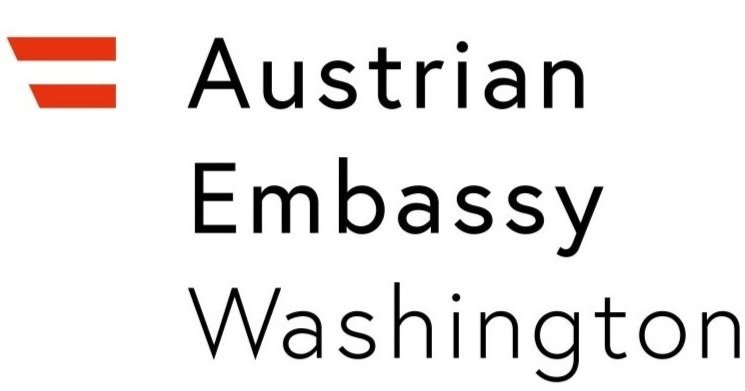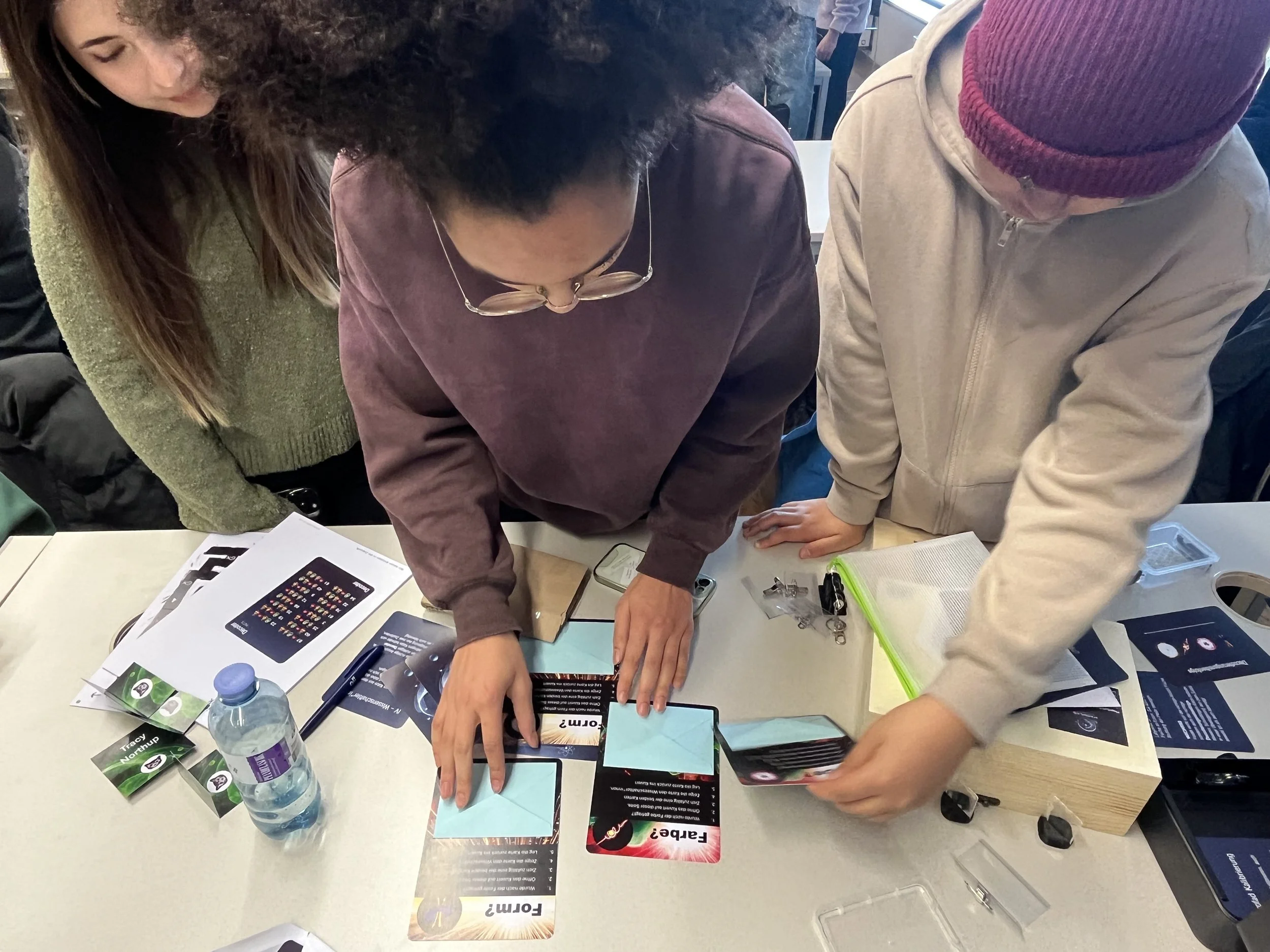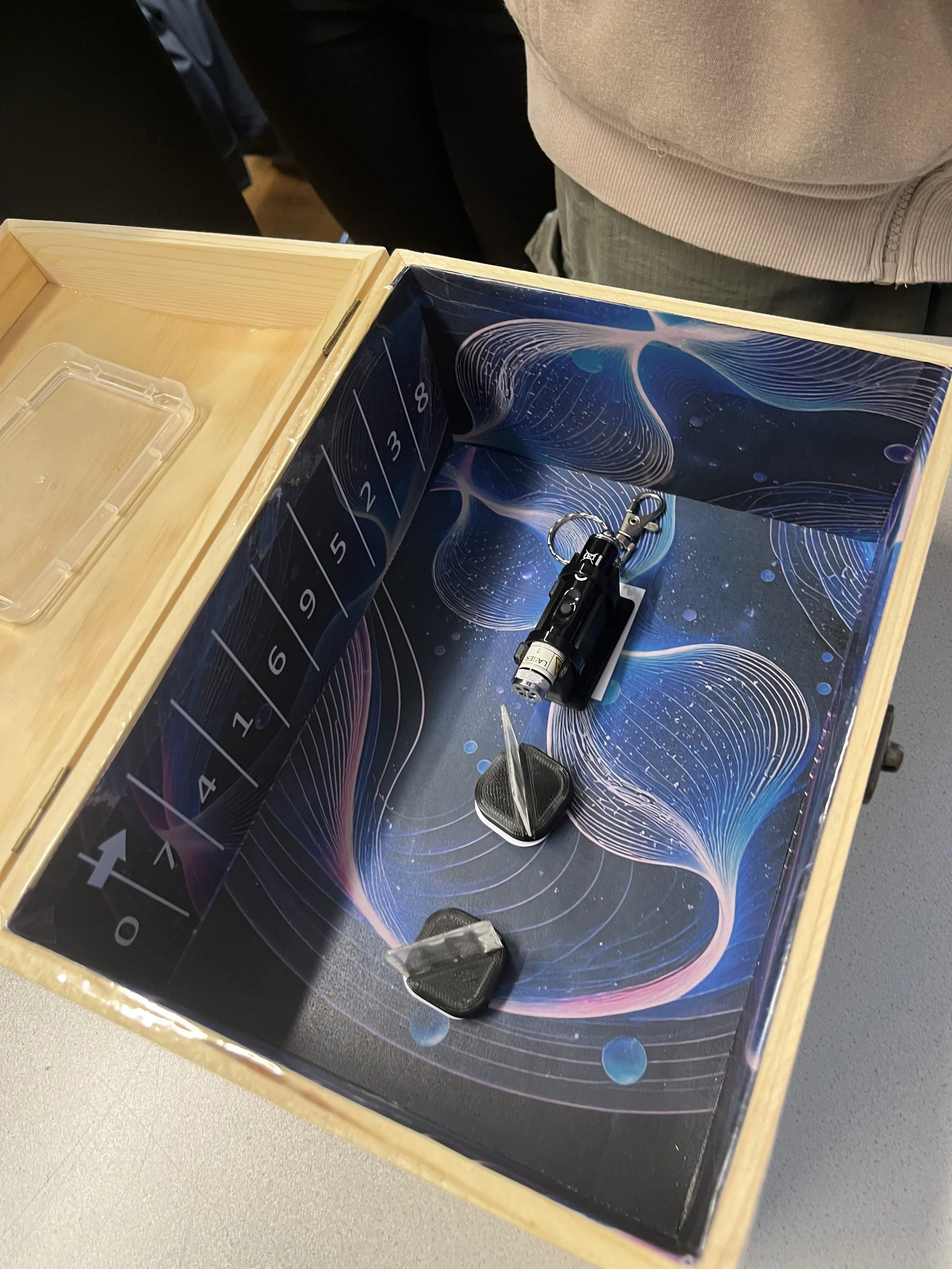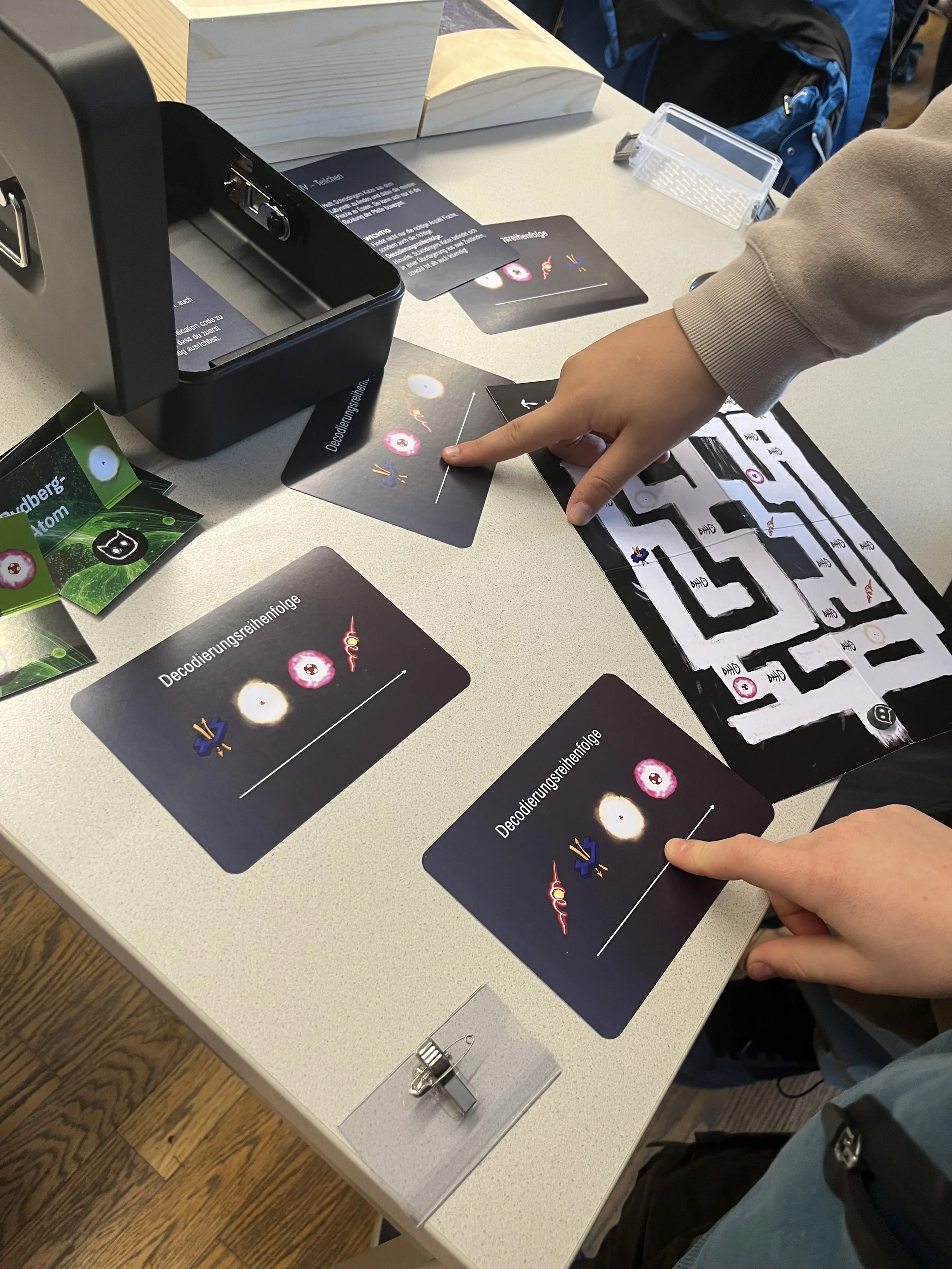Quantum @ School
Unlocking Quantum Mysteries: Inspiring Young Minds with Quantum@School
Students unlock the mysteries of quantum physics with the first test of the Quantum@School program at the Day of Mathematics, Computer Science, and Physics at the University of Innsbruck.
Photo: quantA
Science is the foundation of progress in modern society, shaping technology, innovation, and our understanding of the universe. Among the many scientific advancements of recent decades, quantum physics stands out as a field that is an integral part of many technologies present in our everyday lives, such as smartphones, computers, lasers, optical fibers, medical devices, etc., and it is a developing research field with potential to revolutionize even more industries ranging from computing and communication to materials science. Yet, this fascinating field often seems abstract and intimidating, especially to young students.
That is where Quantum@School steps in. This innovative program introduces quantum physics and quantum research to secondary school students in an engaging, interactive way, with the aim of increasing their passion for modern science and technology. And with 2025 declared as the International Year of Quantum Science and Technology by UNESCO, there is no better time to bring this cutting-edge science into classrooms. When it comes to quantum physics, both students and teachers need new, inspiring ways to dive into the field, since traditional physics curricula often struggle to present it in an accessible way, making it seem too complex and advanced for the high school level. Therefore, innovative teaching methods are needed to transform how students experience and engage with the subject.
The outreach program for Quantum@School has been designed at the University of Innsbruck and adapted for students 14 to 17 years old, bridging the lower and upper secondary levels of education. It aims, in particular, to attract schools that are usually hard to engage in physics outreach activities. The program will be run in the first week of October in schools across Austria. Teachers will be able to register their classes in advance. Then, a PhD student doing research in quantum physics will visit the school to conduct the program on-site.
At the core of this outreach initiative is an escape game, designed to teach fundamental quantum physics concepts through interactive riddles and problem-solving tasks. The overarching theme of the game revolves around quantum macroscopicity, a field that explores the boundary between the classical and the quantum worlds, which is an active research area of several groups in Austria. This game-based approach allows students to experience quantum principles hands-on, making complex ideas more tangible and engaging. After completing the escape game, the visiting PhD student will introduce their research and facilitate a discussion session, linking the game’s concepts to real-world quantum phenomena.
To ensure the long-term sustainability and impact of this initiative, the program has been developed with strong institutional support and strategic partnerships. The project is developed in a collaboration between quantA, Austria’s cluster of excellence in quantum research, and the Innsbruck Physics Research Center, and is supported by the Faculty of Mathematics, Computer Science, and Physics at the University of Innsbruck. Additionally, the project will be integrated in the Science Ambassadors program of the Austrian Agency for Education and Internationalisation (OeAD). By fostering these synergies, the project aims to create lasting connections between schools and universities, positioning PhD students as ambassadors who can continue to engage with schools beyond this initiative. This will help bridge the gap between secondary education and cutting-edge research, making quantum science more accessible and relevant to younger generations.
Beyond students, the project also seeks to empower teachers by providing them with the resources and training necessary to introduce quantum physics into their classrooms. A common barrier to teaching modern physics concepts in schools is the knowledge gap that many teachers face. To address this, the initiative will establish a network of engaged teachers and offer a structured course on the basics of quantum mechanics, equipping educators with the necessary skills and confidence to incorporate these topics into their curricula. By strengthening teacher knowledge, the program ensures that quantum education does not end with a single event but becomes a sustained part of the school experience.
This initiative also encourages collaboration among Austrian universities, fostering a community of PhD students passionate about science outreach. By involving young researchers in public engagement, the project benefits both students and scientists: school students gain direct insights into real-world quantum research, while PhD students develop valuable communication and teaching skills. This initiative, therefore, helps bridge academia and society, reinforcing Austria’s leadership in quantum education and research.
The riddles are designed to introduce fundamental concepts in quantum mechanics, such as quantum superposition or the uncertainty principle.
Photos: quantA



